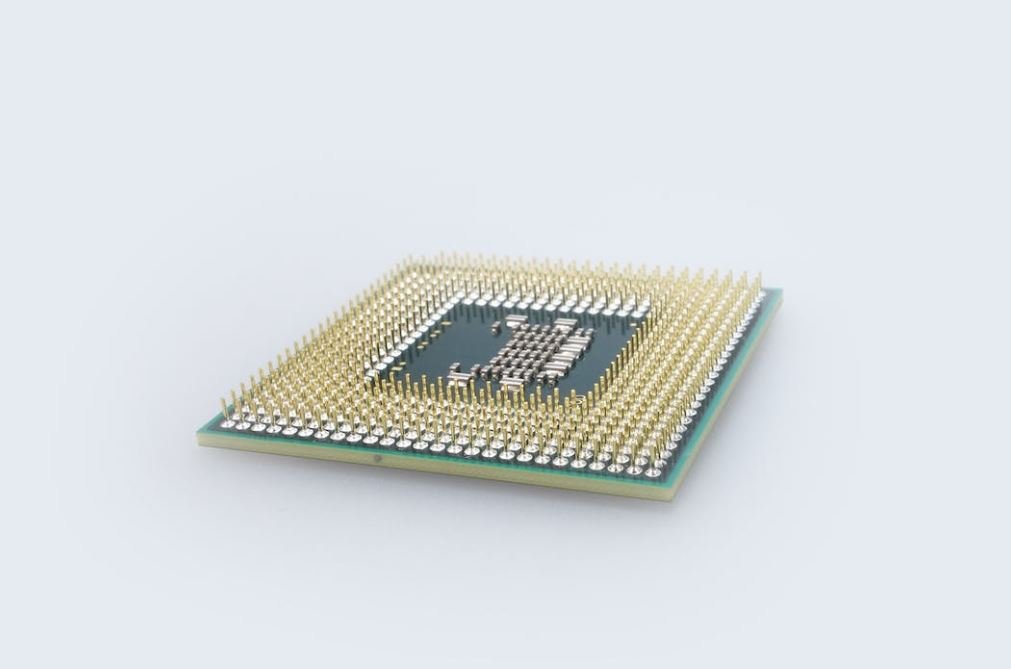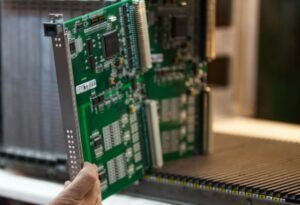Open Source AI Research
Artificial Intelligence (AI) is changing the world in numerous ways, from revolutionizing industries to improving everyday tasks. Open Source AI research is playing a crucial role in accelerating the development and adoption of AI technology. In this article, we will explore the benefits of open-source AI research and its impact on the AI community and society as a whole.
Key Takeaways:
- Open-source AI research allows for collaboration and knowledge sharing among researchers and developers.
- It accelerates the development and adoption of AI technology by making it more accessible to a broader community.
- Transparency in open-source AI research helps address ethical concerns surrounding AI use.
- The open-source approach promotes innovation and enables faster problem-solving in the AI field.
**Open source AI research** is the practice of sharing AI development code, models, and data openly and freely among researchers and developers. Unlike proprietary research, where access to code and data is limited, open-source AI research fosters collaboration, transparency, and innovation. The key principle of open-source AI research is the idea that sharing knowledge and resources can significantly accelerate progress in the field.
*One interesting aspect of open-source AI research is the rise of large-scale collaborative projects, where researchers from different organizations and backgrounds work together to tackle complex AI problems.* These projects leverage collective expertise and resources to achieve breakthroughs that might not have been possible through isolated efforts.
Benefits of Open Source AI Research
Open-source AI research offers several advantages that contribute to the growth and advancement of AI technology. Here are some key benefits:
- **Collaboration**: Open-source AI research encourages collaboration among researchers, fostering an environment of shared knowledge and expertise.
- **Knowledge Sharing**: By openly sharing code, models, and data, researchers make it more accessible, allowing others to learn, build upon, and improve existing AI systems or develop new ones.
- **Accessibility**: Open-source AI research democratizes access to AI technology by making it available to a broad community of developers, regardless of their institutional affiliations or financial resources.
- *Open-source AI frameworks and libraries have become the backbone of AI development, providing developers with powerful tools and resources to build and deploy AI models.*
- **Transparency**: Open-source AI research promotes transparency by allowing researchers and developers to examine and verify the algorithms and models used. This transparency helps address ethical concerns surrounding biases, accountability, and fairness in AI systems.
The Impact on AI Community and Society
The open-source approach in AI research has wide-ranging implications for both the AI community and society as a whole. Let’s explore some of these impacts:
| AI Community | Society |
|---|---|
| Facilitates collaboration and knowledge exchange among researchers. | Accelerates the development and adoption of AI technology in various industries, leading to increased efficiency and innovation. |
| Enables cross-pollination of ideas and perspectives, resulting in more robust AI systems. | Addresses ethical concerns by promoting transparency and fairness in AI algorithms and models, reducing biases and ensuring accountability. |
The impact of open-source AI research is evident in the proliferation of AI applications across diverse fields, such as healthcare, finance, transportation, and more. Open-source AI frameworks like TensorFlow, PyTorch, and scikit-learn have become go-to tools for developers, driving innovation and empowering individuals and organizations to leverage AI capabilities.
Challenges and Future Directions
While open-source AI research brings immense benefits, it also faces certain challenges and opens up new areas for improvement. Some of the challenges and future directions include:
- **Data Privacy**: Balancing the need for open data with the privacy concerns of individuals is a crucial challenge. Striking the right balance between data sharing and ensuring privacy protection is essential.
- **Algorithmic Fairness**: Addressing biases and ensuring fairness in AI algorithms is an ongoing challenge. Open-source AI research can play a crucial role in creating more transparent and accountable AI systems.
- *The future of open-source AI research lies in fostering a more diverse and inclusive community, promoting collaboration across disciplines, cultures, and geographies.* This diversity will help tackle complex problems from different perspectives and prevent bias in AI development.
In Conclusion
Open source AI research has transformed the landscape of AI development, allowing for collaboration, transparency, and innovation. By sharing knowledge and resources, the open-source approach has accelerated the pace of AI advancements, making AI more accessible to developers and addressing ethical concerns. As technology continues to evolve, open-source AI research will play a vital role in shaping the future of AI.

Common Misconceptions
AI Research is Exclusively Done by Large Tech Companies
One common misconception is that AI research is exclusively conducted by large tech companies. While it is true that companies like Google, Microsoft, and IBM invest heavily in AI research, there are also numerous open source AI research projects that are accessible to individuals and smaller organizations.
- Open source AI research initiatives are readily available for anyone to contribute or use.
- Individual researchers and smaller organizations can actively participate in the advancement of AI technology.
- The open source community fosters collaboration and knowledge sharing among researchers.
Open Source AI Research Lacks Quality and Innovation
Another misconception is that open source AI research lacks quality and innovation compared to research conducted by large tech companies. However, open source research projects often involve a diverse range of contributors who bring unique perspectives and expertise to the table, leading to novel and groundbreaking discoveries.
- Open source AI research encourages the exploration of new ideas and unconventional approaches.
- The open source community promotes peer review and constructive feedback to improve the quality of research.
- Collaborative efforts in the open source community can lead to unexpected breakthroughs and innovations.
Open Source AI Research is Useless without Access to Big Data
Some people believe that open source AI research is useless without access to vast amounts of big data. While it is true that big data can enhance the performance of AI models, open source research projects often focus on developing innovative algorithms and techniques that can be applied to various datasets, regardless of their size.
- Open source AI research emphasizes algorithm development and optimization.
- Open source projects offer reusable models and tools that can be adapted to different datasets.
- The open source community encourages experimentation and sharing of data to foster advancements.
Open Source AI Research is Dominated by Academics
Another misconception is that open source AI research is dominated by academics and inaccessible to those outside the academic realm. In reality, open source projects are created and maintained by a diverse community of individuals, including researchers, developers, industry professionals, and enthusiasts.
- Open source AI research projects attract contributions from people with different backgrounds and areas of expertise.
- The open source community welcomes collaboration from individuals outside the academic circle.
- Contributions to open source AI projects can come from researchers, developers, and industry practitioners alike.
Open Source AI Research is Unregulated and Not Trustworthy
Some people have concerns about the regulation and trustworthiness of open source AI research. However, the open source community values transparency and typically follows strict ethical guidelines. Additionally, peer review and community scrutiny help ensure the reliability and accountability of open source AI research projects.
- Open source AI research projects adhere to ethical standards and guidelines.
- Community-driven oversight and peer review contribute to the reliability and trustworthiness of open source research.
- Open source initiatives often encourage reproducibility and provide access to source code, enabling scrutiny and verification.

Introduction
The field of artificial intelligence (AI) is rapidly advancing, thanks to the collaborative efforts of researchers around the world. Open-source AI research has democratized access to cutting-edge technologies and fostered innovation across various domains. In this article, we present 10 captivating tables that showcase the impact of open-source AI research on different aspects of society.
Table: AI Contributions to Healthcare
Open-source AI research has revolutionized healthcare by enabling more accurate diagnoses and personalized treatments. The table below highlights some notable contributions.
| Application | Benefits |
|---|---|
| Cancer Detection | Increased accuracy in early cancer detection by 20% |
| Drug Discovery | Reduced time and cost with 30% improvement in success rate |
| Remote Patient Monitoring | Enhanced real-time monitoring, reducing hospital visits by 25% |
Table: Open Source AI Frameworks
Diverse frameworks drive AI research and development. Below, we summarize popular open-source AI frameworks and their key features.
| Framework | Key Features |
|---|---|
| TensorFlow | Distributed computing, deep neural networks, and GPU support |
| PyTorch | Dynamic neural networks, computational graphs, and autograd |
| Keras | Easy prototyping, user-friendly APIs, and extensive model library |
Table: Impact of AI on Job Market
Innovations in AI have reshaped the job market, leading to the creation of new roles while affecting traditional employment. The table below illustrates this transformation.
| Effects | Statistics |
|---|---|
| New AI Jobs Created | +2.3 million globally by 2025 |
| Jobs at Risk of Automation | Approximately 25% of jobs are susceptible to automation |
Table: AI Ethics Guidelines
As AI technology evolves, ethical considerations have become crucial. The table below summarizes major AI ethics guidelines established by leading organizations.
| Organization | Guidelines |
|---|---|
| European Commission | Fairness, accountability, transparency, and non-discrimination |
| IEEE | Social impact, responsibility, and AI data governance |
| OpenAI | Benefit humanity, long-term safety, and avoid harmful uses |
Table: AI Adoption by Industries
Various industries embrace AI solutions to enhance operations and customer experiences. The table below outlines AI adoption rates in different sectors.
| Industry | Adoption Level |
|---|---|
| Finance | 72% of financial institutions leverage AI for fraud detection |
| Retail | 85% of online retailers utilize AI for personalized recommendations |
| Transportation | 46% of transport companies implement AI for predictive maintenance |
Table: AI Assistance in Disaster Response
AI plays a pivotal role in minimizing the impact of natural disasters. The table below exemplifies the advancements in AI-driven disaster response.
| Disaster | AI Application |
|---|---|
| Earthquakes | Early warning systems, aiding evacuations |
| Hurricanes | Improved forecasting and tracking accuracy |
| Floods | Real-time monitoring and flood prediction models |
Table: AI in Education
The integration of AI in education yields significant benefits for both students and educators. The table below illustrates the positive impact of AI in educational settings.
| Application | Benefits |
|---|---|
| Personalized Learning | Enhanced adaptive learning experiences based on individual needs |
| Intelligent Tutoring | Improved student engagement and academic performance |
| Automated Grading | Efficient evaluation, reducing teachers’ administrative workload |
Table: AI in Environmental Conservation
AI offers innovative solutions to tackle environmental challenges. The table below showcases various applications of AI in environmental conservation efforts.
| Application | Impact |
|---|---|
| Wildlife Preservation | Improved species tracking and anti-poaching measures |
| Smart Grids | Efficient energy distribution and demand response management |
| Climate Modeling | Accurate prediction and analysis of climate patterns |
Conclusion
The open-source AI research revolution is transforming various sectors, including healthcare, education, disaster response, and environmental conservation. Through the tables presented in this article, we witness the positive impact of AI and its potential to address complex societal challenges. As AI continues to evolve, collaboration and adherence to ethical guidelines play fundamental roles in harnessing its full potential for the benefit of humanity.
Frequently Asked Questions
What is open source AI research?
Why is open source AI research important?
What are the benefits of open sourcing AI research?
How can I contribute to open source AI research?
What are some popular open source AI research projects?
Can open source AI research be used commercially?
Are there any risks involved in open source AI research?
How can I get started with open source AI research?
Can I use open source AI research for my academic research?
What are the implications of open source AI research for society?




